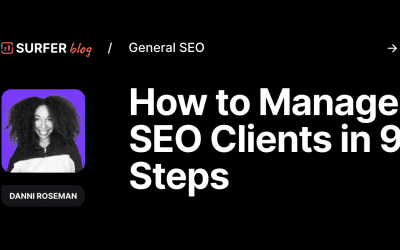Have you ever wondered what SEO is and why it’s important for your website? Well, you’re in the right place! In this article, we will demystify the concept of SEO and explain why it’s crucial for the success of your online presence.
Whether you’re a business owner, blogger, or simply someone who wants their website to be seen by more people, understanding SEO is key. So, let’s dive in and discover the ins and outs of this essential tool in today’s digital world.

Learn more about SEO from our Blog
Definition of SEO
Explanation of what SEO stands for
SEO stands for Search Engine Optimization. It refers to the process of optimizing a website to improve its visibility and rankings on search engine results pages (SERPs). The goal of SEO is to increase organic or non-paid traffic to a website by making it more relevant and valuable in the eyes of search engines.
Overview of what it entails
SEO involves various strategies and techniques that aim to enhance a website’s performance in search engine rankings. These strategies are implemented both on the website itself (on-page optimization) and externally (off-page optimization). Additionally, technical aspects of a website are also crucial for SEO success. Overall, SEO is a continuous process that requires ongoing monitoring, analysis, and adaptation to keep up with the changing search engine algorithms.
Importance of SEO
Enhances website visibility
One of the primary reasons why SEO is important is that it boosts the visibility of your website. When your website ranks higher on search engine results, it has a better chance of being seen by users. The higher visibility can lead to more organic traffic and opportunities for user engagement.
Drives organic traffic
Organic traffic refers to the visitors who come to your website through unpaid search results. SEO plays a significant role in driving organic traffic by making your website appear relevant and useful to search engine users. By optimizing your website for relevant keywords and improving its overall SEO, you can attract more organic traffic and potential customers.
Improves user experience
SEO is not just about search engines; it also focuses on improving the user experience on your website. Through on-page optimization techniques, such as optimizing website navigation and internal linking, you can make it easier for users to navigate through your site and find the information they need. A positive user experience leads to longer visit durations, lower bounce rates, and higher chances of conversions.
Increases website credibility
A high-ranking website is often viewed as more trustworthy and credible by users. When your website appears on the first page of search results, it implies to users that search engines consider it highly relevant and authoritative. By implementing effective SEO strategies, you can increase your website’s credibility and gain the trust of your target audience.
Boosts brand awareness and recognition
SEO helps in building brand awareness by ensuring that your website is prominently displayed to users who search for information or products related to your industry. When your website consistently appears in search results, it creates brand familiarity and increases the chances of users recognizing and remembering your brand. A strong online presence through SEO can contribute significantly to your brand’s visibility and recognition.
Key Components of SEO
On-page optimization
On-page optimization involves optimizing various elements on your website to make it more search engine-friendly and user-friendly. This includes optimizing page titles, meta descriptions, headings, URLs, and content. It also involves improving the website’s overall structure, navigation, and internal linking.
Off-page optimization
Off-page optimization focuses on improving the external factors that impact your website’s search engine rankings. This includes building high-quality backlinks from reputable websites, creating a strong social media presence, and engaging in influencer partnerships. Off-page optimization also involves listing your website in online directories and ensuring that your business information is accurate and consistent across different platforms.
Technical SEO
Technical SEO refers to the optimization of your website’s technical aspects to improve its overall performance in search engine rankings. This includes optimizing website speed and performance, ensuring mobile-friendliness and responsiveness, implementing structured data markup, creating and submitting a sitemap, and optimizing the robots.txt file. Technical SEO helps search engines crawl and index your website more efficiently, resulting in improved visibility and rankings.
On-page Optimization
Importance of relevant keywords
Relevant keywords are crucial for on-page optimization. By conducting keyword research and identifying the terms and phrases that your target audience is searching for, you can optimize your website’s content to align with those keywords. Including relevant keywords in your titles, headings, meta tags, and content helps search engines understand the purpose and relevance of your pages, leading to improved rankings for those keywords.
Optimizing meta tags
Meta tags, such as title tags and meta descriptions, provide information about your web pages to search engines and users. Optimizing these tags by including relevant keywords and creating compelling descriptions can significantly impact your website’s click-through rates and rankings. Well-optimized meta tags enhance the visibility and credibility of your website in search engine results, attracting more organic traffic.
Creating quality content
Creating high-quality, unique, and informative content is essential for on-page optimization. Search engines prioritize websites that offer valuable and relevant content to users. By publishing original and engaging content that addresses the needs and interests of your target audience, you can attract more organic traffic and encourage user engagement. Quality content also increases the likelihood of other websites linking to your pages, further enhancing your SEO efforts.
Improving website navigation and internal linking
Optimizing website navigation and internal linking is crucial for both user experience and SEO. Easy navigation allows users to explore your website smoothly, increasing the time they spend on your site and reducing bounce rates. Additionally, proper internal linking helps search engines crawl and index your website more effectively, improving its visibility and rankings. By linking relevant pages within your own website, you can also enhance the flow of link equity, boosting the authority of your pages.

Off-page Optimization
The significance of backlinks
Backlinks are external links that point to your website from other authoritative and relevant websites. They play a crucial role in off-page optimization as search engines consider backlinks as endorsements or votes of confidence in the quality and relevance of your content. The more high-quality backlinks you have, the higher your website is likely to rank. Building a strong network of backlinks through outreach, guest posting, and content promotion is important for off-page optimization.
Social media marketing
A strong social media presence is essential for off-page optimization. Social media platforms provide an opportunity to engage with your target audience, build brand awareness, and attract traffic back to your website. By regularly sharing valuable content, interacting with followers, and participating in relevant discussions, you can establish your brand’s authority and credibility, ultimately boosting your website’s visibility and search engine rankings.
Influencer partnerships
Collaborating with influencers in your industry can significantly impact your off-page optimization efforts. By leveraging the reach and influence of these individuals, you can expand your brand’s visibility and reach a wider audience. Influencers can help generate high-quality backlinks, promote your content and products, and enhance your brand’s reputation. Building authentic and mutually beneficial relationships with influencers can drive organic traffic and improve your website’s overall SEO.
Online directories and listings
Listing your website in reputable online directories and listings is another important aspect of off-page optimization. These directories provide additional exposure and visibility for your business, allowing potential customers to find you more easily. It’s crucial to ensure that your business information, such as name, address, and phone number, is accurate and consistent across different directories. This consistency helps search engines understand and trust your business information, contributing to improved local search rankings.
Technical SEO
Website speed and performance
Fast-loading websites are essential for a positive user experience and better search engine rankings. Slow-loading websites can lead to high bounce rates and poor user engagement, negatively impacting your SEO efforts. Optimizing website speed and performance involves various techniques such as minifying CSS and JavaScript, optimizing image sizes, leveraging browser caching, and using content delivery networks (CDNs). Improving website speed and performance helps search engines crawl and index your site more efficiently, resulting in improved visibility and rankings.
Mobile-friendliness and responsiveness
With the increasing usage of mobile devices, having a mobile-friendly and responsive website is crucial for SEO success. Mobile-friendly websites not only provide a better user experience for mobile users but also align with search engine preferences. Search engines prioritize mobile-friendly websites in their mobile search results, giving them a higher chance of ranking higher. Implementing responsive web design and ensuring that your website adapts to different screen sizes and devices is essential to stay competitive in today’s mobile-driven world.
Structured data markup
Structured data markup helps search engines understand the content and context of your web pages better. By implementing structured data markup, you can provide additional information about your website’s content, such as reviews, ratings, product details, and event information. This additional information appears as rich snippets in search engine results, making your website stand out and increasing click-through rates. Implementing structured data markup not only improves your website’s visibility but also enhances the user experience by providing more relevant and informative search results.
Sitemap creation and submission
A sitemap is a file that lists all the pages on your website and provides valuable information about their relationships and importance. Creating a sitemap helps search engines crawl and index your website more efficiently. By submitting your sitemap to search engines, you ensure that they are aware of all relevant pages on your website. This improves the visibility and rankings of your web pages, ensuring that they are included in search engine results.
Robots.txt optimization
The robots.txt file is a text file that instructs search engine crawlers on which pages of your website to crawl and index. Optimizing the robots.txt file helps search engines efficiently crawl and index your website without wasting resources on irrelevant or duplicate content. By properly configuring and optimizing the robots.txt file, you can control how search engines access and interpret your website, leading to improved visibility and rankings.

SEO Methods and Techniques
White hat SEO
White hat SEO refers to ethical and sustainable practices that align with search engine guidelines. It focuses on long-term strategies that prioritize user experience and high-quality content. White hat SEO techniques include conducting thorough keyword research, optimizing website elements, creating valuable content, and building natural backlinks through outreach and relationship-building. White hat SEO aims to deliver lasting results by focusing on providing value to users and following best practices.
Black hat SEO
Black hat SEO involves unethical and manipulative practices that aim to manipulate search engine rankings. These practices go against search engine guidelines and can result in penalties or even complete removal from search engine results. Black hat SEO techniques include keyword stuffing, hidden text and links, spamming, cloaking, and other tactics that prioritize search engines over users. Black hat SEO may result in short-term gains but is highly risky and can lead to severe consequences for your website’s visibility and reputation.
Gray hat SEO
Gray hat SEO lies somewhere in between white hat and black hat SEO techniques. It involves practices that are not explicitly prohibited by search engines but may still push the boundaries of ethical guidelines. Gray hat SEO strategies may include tactics such as purchasing expired domains, participating in private blog networks (PBNs), or engaging in aggressive link-building schemes. While gray hat SEO can offer short-term results, it carries a higher risk of penalties or algorithmic changes that can negatively impact your website’s visibility in the long run.
White Hat SEO
Ethical and sustainable practices
White hat SEO relies on ethical and sustainable practices that focus on long-term success. It follows search engine guidelines and prioritizes user experience and value. White hat SEO techniques involve creating high-quality and relevant content, optimizing website elements, building natural and authoritative backlinks, and providing a positive user experience. By adhering to white hat SEO principles, you can ensure that your website’s visibility and rankings are built on solid foundations.
Focus on user experience
User experience is at the heart of white hat SEO. White hat SEO techniques aim to create websites that provide a seamless and engaging experience for users. This includes optimizing website navigation, improving page loading speed, optimizing for mobile devices, and delivering valuable and informative content. By focusing on user experience, white hat SEO ensures that websites are not only search engine-friendly but also user-friendly, resulting in higher engagement, conversions, and customer satisfaction.
Quality content generation
Creating high-quality and unique content is a fundamental aspect of white hat SEO. By generating original and valuable content that meets the needs and interests of your target audience, you can attract organic traffic, gain backlinks, and establish your website as a trusted resource in your industry. Quality content not only improves your website’s visibility in search engine results but also increases the likelihood of users sharing and interacting with your content, further enhancing your SEO efforts.
Natural link building
White hat SEO emphasizes natural and organic link building. Natural link building involves earning backlinks from reputable and relevant websites through valuable content, outreach, and relationship-building. It focuses on creating genuine connections and providing value to other websites, rather than artificially manipulating links. Natural backlinks from authoritative sources contribute to the credibility and visibility of your website, improving your overall SEO performance.

Black Hat SEO
Unethical and manipulative practices
Black hat SEO relies on unethical and manipulative practices that aim to deceive search engines for temporary gains. These practices violate search engine guidelines and can result in severe consequences, including penalties or even complete removal from search engine results. Black hat SEO techniques prioritize search engine rankings over user experience and often employ deceptive tactics to achieve higher rankings.
Keyword stuffing
Keyword stuffing involves excessively using keywords in content or meta tags with the intention of manipulating search engine rankings. This practice makes the content appear unnatural and spammy, and it goes against search engine guidelines. Keyword stuffing can lead to penalties and loss of visibility, as search engines prioritize content that provides value to users.
Hidden text and links
Black hat SEO may involve hiding text or links from users, while search engines can still read and index them. This tactic aims to manipulate search engine rankings by including additional keywords or links without the users’ knowledge. Search engines consider this practice deceptive and penalize websites that engage in hidden text and link manipulation.
Spamming and cloaking
Black hat SEO often involves spamming techniques, such as comment or forum spamming, to create backlinks or promote websites. These tactics prioritize quantity over quality and can result in penalties. Cloaking is another black hat technique where different content is shown to search engines and users. This deceptive practice aims to manipulate search engine rankings by presenting content designed solely for search engines while hiding it from users. Search engines actively penalize websites that employ cloaking techniques.
Gray Hat SEO
Combination of white hat and black hat techniques
Gray hat SEO involves combining elements of both white hat and black hat techniques. Gray hat SEO practitioners may use tactics that push the boundaries of ethical guidelines without firmly crossing into black hat territory. This approach can be seen as a way to gain an advantage in the short term, although it carries risks and potential consequences.
Riskier approach
Gray hat SEO techniques carry a higher level of risk compared to white hat SEO practices. While they may provide short-term gains, search engines are constantly evolving their algorithms to detect and penalize websites that engage in questionable tactics. Gray hat SEO practitioners run the risk of facing penalties, loss of visibility, and reputation damage if search engines catch on to their tactics.
Potential short-term gains
Gray hat SEO can offer short-term gains in terms of improved search engine rankings or increased traffic. This may be achieved by leveraging tactics such as purchasing expired domains or participating in private blog networks. However, it’s important to consider the potential risks and long-term consequences that come with gray hat SEO. In the long run, prioritizing sustainable and ethical white hat techniques is a safer and more reliable approach to achieve lasting SEO success.
In conclusion, SEO is a crucial aspect of website optimization that focuses on improving visibility, driving organic traffic, enhancing user experience, and boosting brand recognition. It encompasses various components such as on-page optimization, off-page optimization, and technical SEO. By implementing effective SEO strategies and following ethical practices, you can improve your website’s rankings, attract more organic traffic, and ultimately achieve long-term success in the digital landscape.









